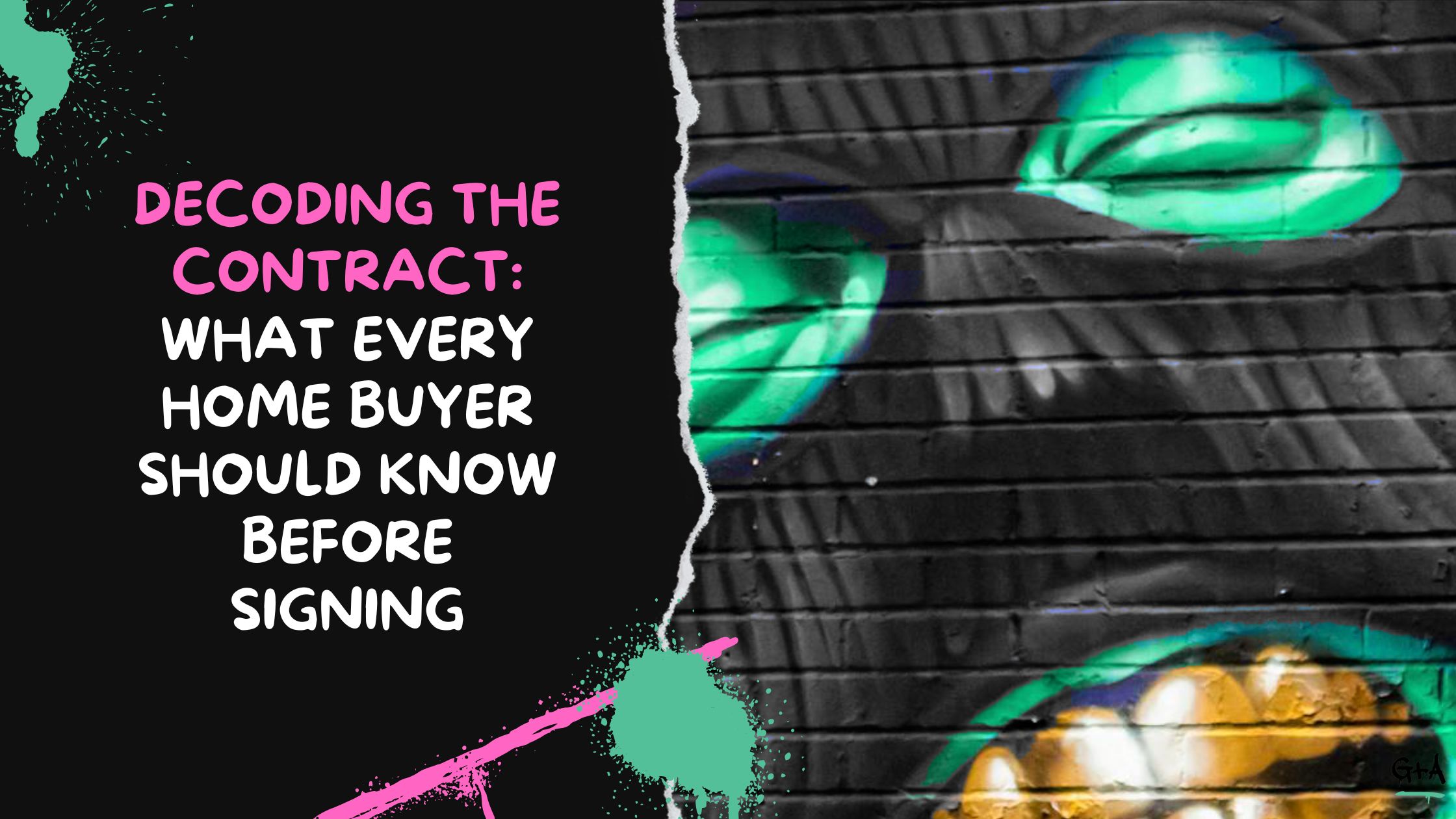Decoding the Contract – What Every Home Buyer Should Know Before Signing
There’s a certain thrill in seeing your name on a contract for your new home, until you realise you just signed off on a document you didn’t fully understand.
The sale contract in a property purchase isn’t just paperwork; it’s the legal roadmap for your rights, risks, and responsibilities. Here’s what you need to know before signing anything that could tie you up in knots.
1. The Contract for Sale. It’s Not One-Size-Fits-All
Every contract is unique. While many contain standard clauses, vendors (or their solicitors) often slip in additional conditions to protect their interests or shift risk to you. These can include restrictions on access before settlement, clauses about furniture inclusions (or exclusions), and vague conditions that are open to interpretation.
This is where your solicitor earns their keep by spotting and negotiating changes before the pen hits the paper.
2. Cooling-Off Periods Aren’t Guaranteed
In NSW, residential buyers typically have a five-business-day cooling-off period after exchanging contracts. Sounds comforting but that period can be waived (or doesn’t apply in some private treaty or auction sales). If you sign a contract without knowing your rights, you could be stuck with a deal you regret.
Always confirm your cooling-off entitlements before signing. If you need time to think, your solicitor can negotiate extra days or insert conditional clauses that give you an out.
3. Special Conditions Need Special Attention
Contracts often include “special conditions” that override or modify the standard terms. These might relate to repairs, settlements, or anything from termite treatment to who mows the lawn before handover.
Some special conditions are harmless; others could leave you footing the bill for a roof replacement. A thorough legal review can save you from agreeing to conditions you’ll later regret.
4. Inclusions and Exclusions. Read the Fine Print
You love the built-in wine fridge. The pendant lights? Stunning. But unless those features are listed in the contract’s inclusions section, you might be waving goodbye to them come settlement.
Inclusions (what stays) and exclusions (what the seller is taking) should be clearly documented. Don’t assume—clarify.
5. Property Tenancy and Possession Clauses
Some properties are sold with tenants in place or with delayed possession terms. Others may allow the buyer early access. These scenarios need clear agreements, and your lawyer will ensure the contract reflects any promises made verbally by the agent.
Final Thoughts
The contract is the most important legal document in your property transaction, yet it’s one of the most misunderstood. What you don’t know can hurt you.
At Green & Associates Solicitors, we specialise in reviewing, negotiating, and explaining property sale contracts in clear, practical language. Whether you’re buying your first home or adding to your portfolio, we’ll make sure what you’re signing actually works for you.
Reach out to our team today to ensure your next property contract is a win, not a ticking time bomb.




